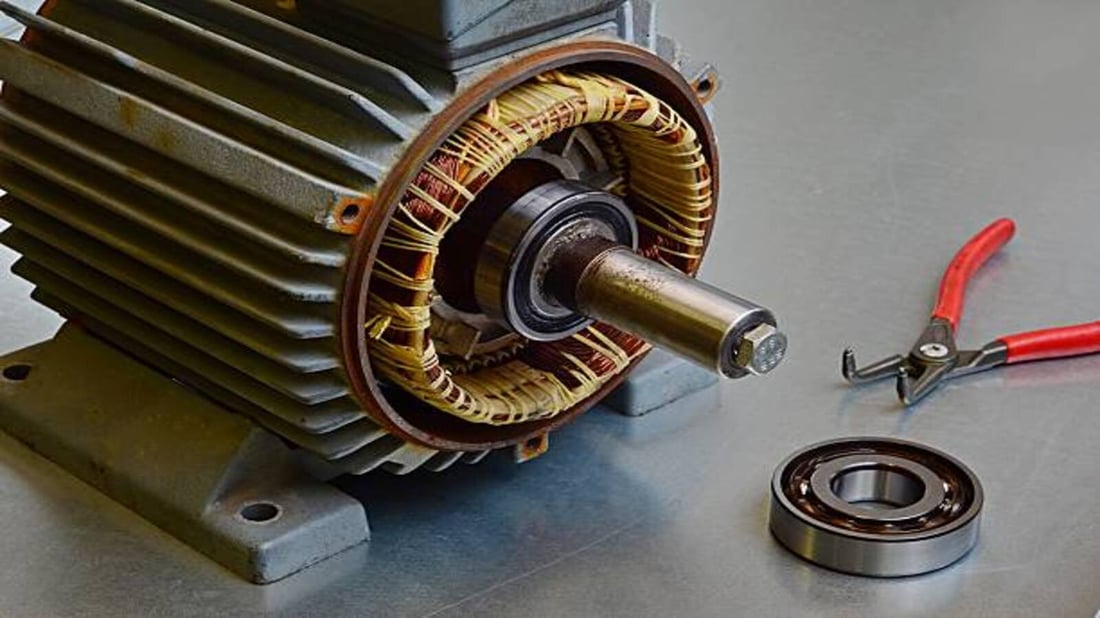How motor bearings impact energy efficiency in machines
When it comes to the energy efficiency of machines, the role of motor bearings cannot be overlooked. The bearings in a motor play a crucial role in controlling the energy consumption of the machine. By understanding how motor bearings impact energy efficiency, you can make informed decisions on motor selection and maintenance.
The Basics of Motor Bearings
Motor bearings are an essential component of almost every type of motor, from the smallest electric drills to the largest industrial machines. They allow the motor shaft to rotate smoothly and reduce friction between moving parts. There are two main types of motor bearings: ball bearings and roller bearings.
The Impact of Bearing Design
The design of the bearings has a significant impact on the energy efficiency of the motor. Bearings with lower frictional losses and higher efficiency will reduce the amount of energy consumed by the motor. Ball bearings are generally considered to be more efficient than roller bearings due to their lower frictional losses.
The Effect of Bearing Lubrication
Proper lubrication of motor bearings is another critical factor that affects the energy efficiency of a machine. Lubrication reduces friction between the bearing and rotating shaft, which in turn reduces the power required to run the motor. Over-lubrication or under-lubrication can both have negative effects on energy efficiency.
The Importance of Bearing Load
The load placed on the bearings is another factor that can affect energy efficiency. Bearing loads refer to the amount of weight or force that is applied to the bearings. High bearing loads can increase frictional losses and reduce efficiency. In contrast, properly balanced bearing loads can help to optimize motor efficiency and reduce energy consumption.
The Impact of Bearing Maintenance
Regular maintenance of motor bearings is essential for optimizing energy efficiency. Proper maintenance can include inspection, cleaning, and lubrication. Failure to maintain motor bearings can result in increased energy consumption, reduced machine performance, and even equipment failure.
The Role of Bearing Materials
The materials used in motor bearings can also impact energy efficiency. Bearings made from high-quality materials such as ceramic or hybrid bearings can have lower frictional losses and higher efficiency. Additionally, bearings made from high-quality materials tend to have better durability and longer lifespans, reducing the need for frequent replacements.
Bearing Preloading and Energy Efficiency
Bearing preloading is another factor that can have a significant impact on energy efficiency. Preloading refers to the process of applying a small amount of force to the bearings before they are installed in the motor. Properly preloaded bearings can help to reduce the energy required to operate the motor.
The Connection Between Motor Bearings and Vibration
Motor bearings can impact the vibration levels of a machine. Vibrations can lead to increased energy consumption and reduced machine efficiency. Properly lubricated and balanced bearings can help to reduce vibration levels and improve energy efficiency.
The Impact of Bearing Selection
Finally, the selection of motor bearings can have a significant impact on energy efficiency. The use of high-quality bearings with lower frictional losses and better durability can reduce energy consumption and improve machine performance. Working closely with a trusted supplier can help ensure that the optimal bearings are selected for each machine.
Conclusion
In summary, motor bearings play a crucial role in the energy efficiency of machines. The design, lubrication, load, maintenance, materials, preloading, vibration, and selection of bearings can all impact energy consumption. By focusing on optimizing these factors, you can help to reduce energy consumption, improve machine performance, and ultimately save money.

